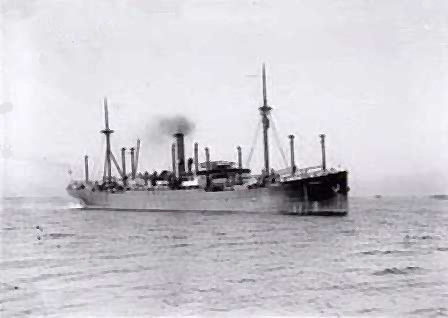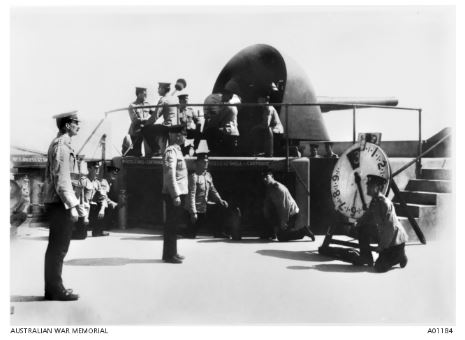HMAT A42 Boorara
From Our Contribution
Contents
Remarks
Prior to its capture in Port Phillip Bay the ship was the German cargo ship Pfalz. Owned by the Norddeutcher Lloyd Line and used on the Bremerhaven, Cape Town, Australia route. It is said that the first shot in anger by any Commonwealth country was the Port Nepean artillery battery's shot across the Pfalz's bow as she sought to escape capture at the commencement of WW1. Just before the ship approached Port Phillip heads, the Royal Australian Garrison Artillery stationed at Fort Nepean was informed of the declaration of war with Germany, and had received an order to "stop her or sink her". Signals were hoisted, commanding the ship to halt. As the warning had no effect, a shot was fired across the bow of the ship from one of the fort's 6 inch Mk VII guns. The pilot convinced the ship's master that a second round would likely be directed at the ship itself, and the ship was turned around. The ship was taken back to Portsea where the crew was placed under arrest
Pfalz was fitted out as a troop transport, and renamed HMAT A42 Boorara. (Boorara is a former gold mining area south east of South Kalgoorlie in West Australia.) It was then manned by Australia officers and crew. She took part in the 2nd Australian convoy and later carried Turkish prisoners from the Dardanelles. While in the Aegean Sea, in July 1915, she was unintentionally rammed by the French Cruiser Kleber, but was beached and patched up at Mudros, then repaired at Naples.
Boorara later was twice torpedoed in the English Channel. On the first occasion, on 20 March 1918, off Beachy Head. She managed to reach Southampton and was made seaworthy for a tow to Newcastle for extensive repairs. However, she was torpedoed again off Whitby on 23 July 1918. Despite her engine room being wrecked twice, the sturdy vessel was repaired in time to help repatriate Australian troops in 1919. She completed three journeys from Australia carrying troops to war and was then transferred to the Commonwealth Government Line on 24 June 1919 where she was used to transport frozen cargo to the UK.
Sold to the Greek shipping line E. Hadjillias of Athens, she was renamed Nereus. In August 1937 she was sailing in ballast from Moji in Japan for Port Alberni to load timber for the UK. On 8 Aug 1937 in heavy fog she ran aground n rocks on the south east coast of Vancouver Island. Her crew were rescued by a salvage steamer and within 48 hours of her grounding her back was broken and she was lost
Soldiers carried
Melbourne to Port Suez 10 May 1917 - 20 June 1917
Embarked in Fremantle 22 May 1917
Other Voyages
- 6 August 1916 from Brisbane.
- 6 June 1919 from England to Australia

